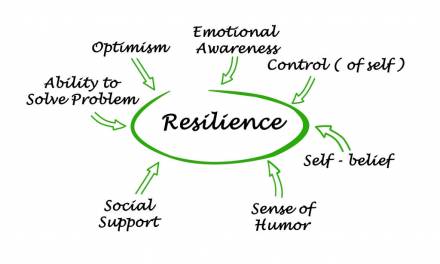Autism can present various challenges for children and families, especially concerning education and development to adulthood. However, there are several avenues to explore that can implement supportive strategies to overcome barriers relating to autism.
What is autism?
“ASD stands for Autism Spectrum Disorder. Autism is a lifelong condition that affects how a person perceives and relates to the world around them. The term ‘spectrum’ is used as no two people are the same. All people with autism share certain strengths and difficulties, but these will affect each individual in different ways.”
An autistic child may struggle with communicating and exhibit certain behavioural patterns. However, with the right support, an autistic child can thrive in an educational setting.
Providing the right support for an autistic child
 EDClass spoke to the Head of Outreach and Training at BeyondAutism, Matthew Wicks, and discussed strategies to implement to overcome barriers to autistic children accessing learning.
EDClass spoke to the Head of Outreach and Training at BeyondAutism, Matthew Wicks, and discussed strategies to implement to overcome barriers to autistic children accessing learning.
BeyondAutism is a non-profit organisation that supports young people between 0-25. They are dedicated to ensuring autistic children and young adults access an education which empowers a life full of choice, independence, and opportunity.
Let’s delve into the key steps you can take to support autistic learners:
1. Implement structure and routine
Structure and routine can provide an autistic child with certainty and support during their learning. When they know what their learning environment is, what they are expected to learn and where they can access assistance, they are more likely to engage with their education. Matthew said:
“A child might be struggling with their learning environment and for autistic children sensory input can be challenging. We need to identify their individual needs and make adjustments so they are more included”.
Implementing structure can help remove barriers that may be making learning difficult for autistic students. For example, the use of visual schedules and now/next boards. sure to work collaboratively with other specialists to develop a comprehensive support plan. You can also read EDClass’s white paper on promoting a more inclusive learning environment here.
2. Celebrate strengths and engage interests
Implementing positive reinforcement can provide an autistic child with heightened self-esteem and a massive confidence boost. Matthew added:
“Young people may find difficulties with their confidence. Communicating is one of the main areas to help meet their needs. There could be an underlying reason why someone might be engaging in a certain behaviour. To support them we need to find out why and support them so they can get their needs met effectively.”
Celebrating a child’s strengths and achievements can encourage them to engage further with learning and tackle new challenges. It’s also important to discuss their likes and interests. In doing so, you can encourage them to develop their communication skills which can support their development to adulthood.
3. Integrate supportive pathways
An autistic child may struggle in a traditional education setting. We must integrate a designated learning pathway or alternative education provision, that is best suited to them so they can thrive. Matthew said:
“Having that alternative approach is great. Often the school environment can be challenging and create barriers that can lead to children missing out on education. For those children with emotional-based school avoidance, Online learning could offer a different space for education when they’re not in a physical setting and be part of a bigger package of support ensuring the child continues to access learning”.
When a child is in a comfortable learning environment, they are less prone to external pressures from peers or distractions that may be in place in a mainstream setting.
Extra things to consider:
- Movement breaks – make sure to provide several breaks that allow movement. This can help manage sensory overload and allow children to refocus.
- Visual and sensory aids – supply a variety of aids that could enhance the learning experience of a child. This can benefit them and the whole class in the long term.
- Using an online alternative education provision (AEP) – If a child is struggling with the rigours of a full academic week in a mainstream setting, AEPs such as EDClass can be beneficial. Children can learn in a comfortable environment with one-to-one support from qualified teachers that can reduce workload, raise confidence for parents and help children reach their potential.
If you would like to learn more about EDClass and what it can offer please ring 01909 568338, send an email to mail@edclass.com or enquire for more information here.










